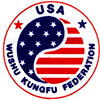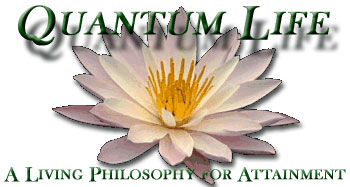Proud
Member
of USAWKF
of USAWKF
Parental Guidance
April 9, 2006
I am sharing this essay with you, my closest friends because it represents
for me, a deeply felt curative. We all move through our lives with nagging
feelings of unresolved issues. Some are trivial, others so much a part
of our reality we cannot think at length about them. I have often wondered
to myself, of what beliefs I held that would produce the actions I had
once taken, why that particular path, why, without self-control, did I
react or respond in such a fashion. That kind of question cannot remain
very long in one's mind without shaking the pillars of one's life. I owe
a tremendous debt of gratitude to Jennifer for helping me to see clearly
the nature of this question for me. The following essay is an illustration
of what I believe to be a predominant factor in the lives of modern society.
Thank you for indulging me.
Loss of Parental Guidance
For a parent to loose a child is always a traumatic experience as is the
loss of any loved one. But, for a child to loose a parent is an especially
difficult experience. To loose both parents is a challenge that deeply
affects a child of any age. The loss is equally significant whether it
is to death, divorce, alcoholism, or even indifference. All of these have
their particular traumatic complexities, but all produce fundamental damage
and trauma to the child.
The fundamental crisis is the loss of parental guidance. The basic relationship
of parent to child is one of the essentials for the balanced and appropriate
development of the child's mind, body, and spirit. It is a formidable
task for which humans are designed but seldom prepared. Parents must offer
love, acceptance, and assurance to a child for the development of self-confidence,
self-reliance, and security. As difficult as those tasks may be at times,
the more challenging tasks to develop maturity, responsibility, and self-criticism
are absolutely essential for the child's developing social skills, ability
to learn and assimilate knowledge from experience, and make intelligent
decisions. This training requires a parents ability to set boundaries
in behaviour from desires to emotions and communications.
Most often the first essential boundary is one of respect. Respect may
begin as simple deference to authority, but it must be developed to recognize
opportunity for learning and self-enhancement. This is key to value assessment.
Without respect, we can learn nothing, nor become worthy. The popular
refrain, "respect must be earned" is rooted in the parent to
child relationship. In order to be respected, one must demonstrate intent
to develop compassionate and benevolent relationships with valuations.
In the parent to child relation, this equation is defined. The child models
all future relations on the basis of the parent to child relation.
When the loss of parental guidance occurs before the development of boundaries,
or the development of self-criticism and a mature depth of humility, the
child is left to project this missing component on every new relationship.
This child, because of lack of development, most probably is not aware
of this behaviour. The scenario goes something like this:
Joan lost both of her parents while she was in her twenties. Her parents,
although very loving, never enforce hard lessons of consequence and self-reflection
on Joan. Sure, there were typical lessons around the house, but nothing
seriously challenging her youthful arrogance and hubris. They were parents
whose desire was to remain "friends" rather than parents in
most instances. Certainly, there were boundaries, but nothing substantive
in regard to self-control, desires, urges, temperament, and expectations.
Joan's parents were not bad people. They simply took too long to introduce
essential boundaries and ran out of time.
The last few years of the parent to child relationship re-enforced the
limited training of love and acceptance due to the declining health of
the parents. Joan, now on her own to learn assimilation into society is
left with her youthful tools, which are limited, emotional, and reactive.
Internally, she knows she needs more training, but externally she is vulnerable
and confrontational. This is the hallmark of lack of training in self-criticism,
humility, respect, and self-confidence.
Whether Joan realizes it or not, she sets up every relationship as a pseudo-parent
advisor. She barrages each new friend with questions on every activity
in her life from career decisions to personal quirks and matters of irrelevant
curiosities. Joan observes her self doing this and devises an elaborate
justification for herself just as she would have as a teenager. Joan defines
herself as bold, honest, and authentic. This is her new disguise. These
"qualities" she gives herself give her a sense of confidence
(unguided and self-justified). In point of fact, this confidence now gives
her license to annihilate, attack, and destroy any who challenge her self-perception.
And this she does with some relish, as, "who are "they"
to usurp my deceased parents". To Joan, her ability to crush those
whom she has set-up to advise her is proof of her strength and superiority.
It is obvious to those around Joan, that she is self-destructive and immature.
With this elaborate defence mechanism, Joan is almost unreachable. If
Joan is ever to develop further, there will most likely be a great series
of traumatic relationships leading to an eventual breakdown and possibly
self-induced humility to gain a more mature perspective. It is unlikely
though, in our fractured society, that Joan will make these discoveries
until late in her life. This is not to say that Joan's life is ruined
or of no value. It is however, a tragedy of the breakdown of the parent
to child relation.
Joan's example may seem extreme, but on the contrary, it is the norm.
Again, however the breakdown occurs, the damage is the same. The differences
are only in the complexities, and not in the fundamentals. Whenever a
child is left to develop on its own, development is limited by that child's
skill-set. Humans transfer skill-sets through generational teachings.
In this function society provides role models, desirable templates of
food, fashion, behaviours, and even an occasional mentor. All the influences
of society are powerful sculptors of its constituents, but no influence
is as essential, fundamental and permanent as the primal constructs of
the parent to child relation. Only here are the first formative human
behaviours learned to build on the instinctive realities of food, shelter,
and survival.
In many spiritual traditions, the practice of rituals is done in groups.
Historically this can be seen as a compassionate example of the need for
intimate guidance. The group becomes a partial replacement for the lack
of parental guidance. Hence, the common pseudonym of "father"
for the priests or leaders. In the Buddha's teachings, tremendous merit,
reverence, and respect are given to the group or Sangha. Even so, the
Buddha also taught that one could achieve enlightenment, albeit more difficult,
on one's own. It is in this knowledge and in the foresight of an age when
most in the world's societies would be left without structure, family,
mentors, or teachers, that Nichiren propounded the Buddha's teaching in
its simplest form. The practice of chanting the daimoku "Nam-myoho-renge-kyo"
is a direct path to one's highest innate and fundamental source. Whether
you call it God, Buddha, Higher power, or whatever, this source is the
ultimate parent, teacher, and sovereign. This way we can restore our lives
and free ourselves from our delusions and false defences to gain clarity,
security, humility, and real confidence.
With all my love and respect,
Reverend Sylvain Nyudo












